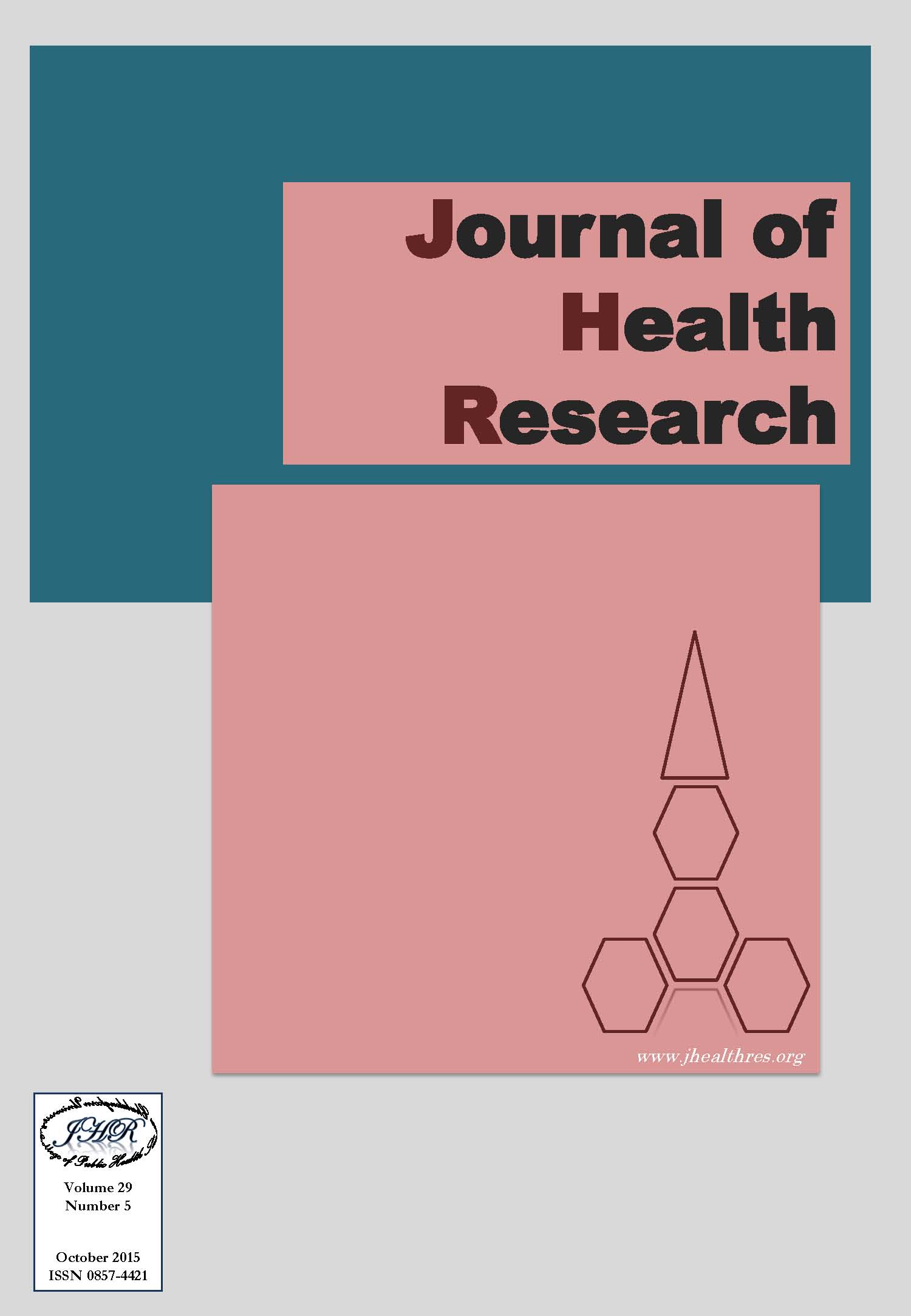Reliability of Healthy Eating and Health Behavior Questionnaire for Thai Adults
Keywords:
Reliability, Eating behaviors, Health behaviors, Questionnaires, Thai, Health behavior questionnaireAbstract
Background: This study aimed to develop and examined reliability of healthy eating and health behavior questionnaire (HEHBQ) used for self-assessment in Thai adults.
Methods: The HEHBQ was developed based on the evidence of the transition of eating pattern among Thai adult population and the conformation with Thai Food Based Dietary Guideline. The HEHBQ included three sections: the context of healthy eating and health behaviors (HE), the unhealthy eating and health risk behaviors (UHE), and self-health monitoring (HM). Four hundreds sixty-five Thai adults, from urban and semi-urban areas, were invited to self-administer the HEHBQ during work day. Anthropometry measurements were also performed in all participants.
Results: HEHBQ had a satisfactory internal consistency that Cronbach’s alpha was 0.69 for HE, 0.72 for UHE and 0.79 for HM section. Reliability test outcomes derived from two areas was examined by intra-class correlation coefficient (ICC). The ICC for HE, UHE and HM section were 0.59, 0.54 and 0.77 (p< .001) respectively, indicating the fair stability of the questionnaire. The higher proportion of the older adult group who had higher score in all three sections was found when compared to young adult groups. Significantly higher score (p<0.001) in HM section was observed in the obese than in the normal weight and wasted participants.
Conclusions: The healthy eating and health behavior questionnaire is reliable and is considered an optional nutrition tool used in public health surveillance. Further modification of questionnaire items may help to predict dietary risk factors associated with specific nutrition-related disorders.







